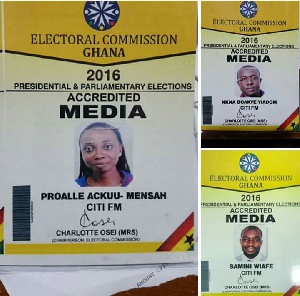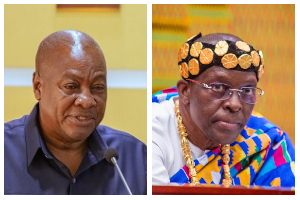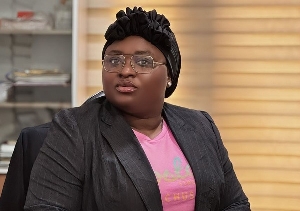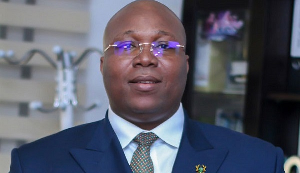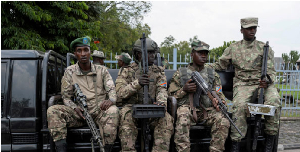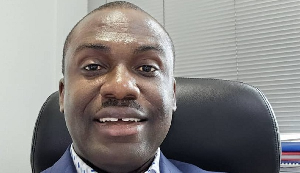The Electoral Commission's (EC) recent directive to limit media accreditation to eight media organisations per constituency and 12 regionally has sparked outrage across multiple fronts.
Those directly or indirectly appalled by the edict so far include journalists, democracy advocates, international election observers and even members of the public.
While this directive may be rooted in a desire for efficiency or precautionary measures, its broader implications on press freedom and the integrity of the 2024 general elections are deeply troubling.
A Recipe for Chaos in Tense Times
The 2024 elections are already fraught with heightened political tensions, with some political parties and stakeholders expressing concerns over fairness and transparency. Such a directive, which arbitrarily restricts media coverage, risks escalating these tensions.
In a democracy where the media plays a pivotal role in ensuring accountability, such limitations or "quota system" can be perceived as attempts to stifle scrutiny, leading to chaos.
A Blow to Public Confidence in the EC
Public trust in the EC has been waning in recent years, and this move could further erode confidence.
By restricting media access, the EC risks being accused of bias or favouritism, which could fuel suspicions about the fairness of the electoral process.
The decision not only undermines transparency but also detracts from the EC's mandate to conduct free and fair elections.
An Affront to Media Freedom and Democracy
Ghana's Constitution guarantees press freedom as a cornerstone of democracy. This directive undermines these principles, setting a dangerous precedent for silencing dissent and limiting public access to credible election information.
It disregards the gains we have made as a nation in fostering a robust democratic culture, signalling a backward step in our democratic journey.
Lack of Clear Modalities for Selection
The EC, in its memo to its district and regional officers, failed to outline clear criteria for selecting the media organisations that will be accredited.
In my experience covering the 2008, 2012, and 2016 general elections—and observing the 2020 elections for an international organisation—past EC administrations issued accreditation based on set guidelines or agreed modalities.
The absence of such modalities now opens the door to potential abuse.
Risks of Abuse and Arbitrariness
This directive is susceptible to abuse. For instance, what if a district or regional officer decides in the exercise of his discretionary powers to allocate the specified slots to politically aligned media outlets?
Such actions could compromise the diversity and impartiality of election coverage, depriving the public of balanced and accurate information.
A Call to Action
I urge the National Media Commission (NMC), Ghana Independent Broadcasters Association (GIBA), Ghana Journalists Association (GJA), Private Newspaper Publishers Association of Ghana (PRINPAG), and media advocates to resist this directive.
Their collective voice is crucial in safeguarding press freedom and ensuring the public's right to comprehensive election coverage.
As a media practitioner, I also appeal to my good friend, Dr. Bossman Asare, Deputy Chairperson of the EC, to reconsider this decision together with his team.
The EC must adopt a transparent and inclusive approach that fosters trust and confidence in the electoral process. Ghana's democracy deserves better.
The upcoming elections will be a defining moment in our history. Let us not allow short-sighted policies to tarnish the democratic ideals we have worked so hard to uphold.
Opinions of Wednesday, 27 November 2024
Columnist: Freeman Kwade

